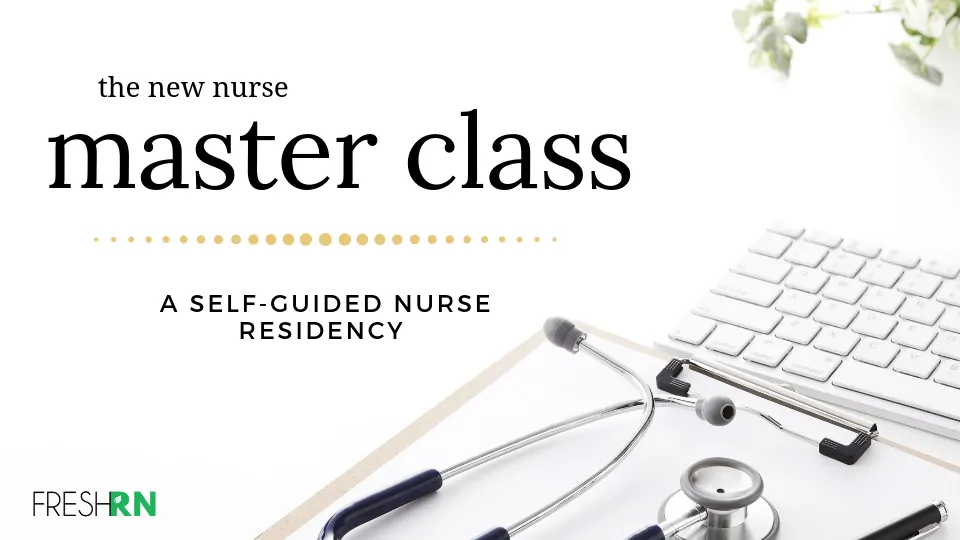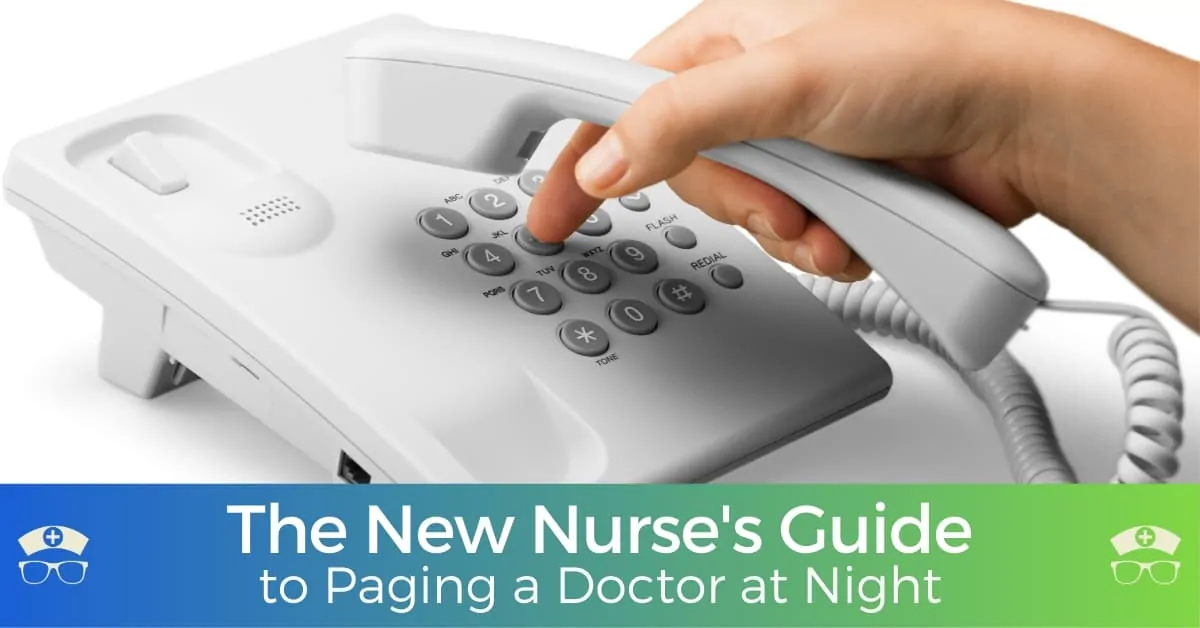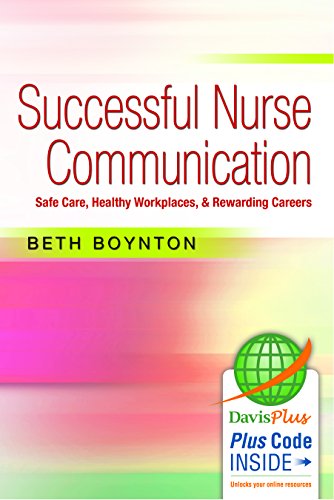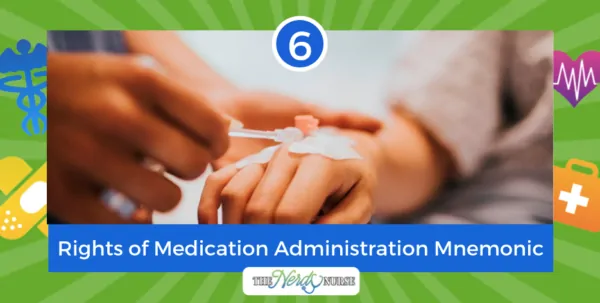You know that feeling. Something’s not right. You’ve done a thorough patient assessment, and checked and rechecked the vitals and the labs. Maybe you even have a “hunch.” But you need orders. You have to go through the steps of preparing yourself and ultimately paging a doctor.
When to Page the Doctor
Sooner or later, your nursing judgment will tell you that your patient has a need beyond your scope of practice. That’s when you need to be a patient advocate and call the doctor – even if it’s the middle of the night! Remember: The physician also has a vested interest in the patient receiving good care and will want to be updated on any important changes… but that doesn’t mean they’re happy to hear from you!
Did you know that communication failures are among the most common root causes leading to patient deaths as reported by the Joint Commission? That call could be the most important nursing intervention you make! Experienced nurses, as well as new grads, know the pain of dealing with a snippy doctor, but as a nurse, it’s your job to report changes in the status of your patient. Don’t let intimidation stop you.
Tips for Paging a Doctor
Being a new nurse doesn’t mean you have to make rookie mistakes. Here are some hints for making that call to help you communicate competently and confidently.
- Perform a focused assessment relating to the specific concern, and use a tool such as SBAR to focus communication. Make sure you have relevant information and be prepared for logical follow-up questions. Having notes on hand of diagnostic tests, labs, and medications given can help you stay focused and answer questions quickly.
- Try to think ahead and anticipate obvious suggestions the doctor may make. Will the doctor order a urinalysis? Blood work? Depending on your facility, you may be able to get those samples started before you call, and then ask if there are any other orders.
- Additionally, while it’s important to get to the point and ask for what you need, be careful not to “recommend” a plan of care because many physicians will view this as a challenge to their status and it is a common source of conflict in nurse-physician relationships.
- Remember to repeat back any verbal orders and remind the physician, if necessary, that they will need to be co-signed later.
Dealing with Difficult Physicians on Call
What if the call doesn’t go well? Sadly, the reality is that physicians are not always receptive, especially in the middle of the night. While you must learn to not take this personally, you do have a responsibility to advocate for the care your patient deserves.
- If the physician responds abruptly, acknowledge it, but don’t engage. You could try something like this: “I understand it’s frustrating to be called at 3 am, but I’ve summarized the information about Mr. Smith, and I need to know what you want to do regarding ____.”
- You should also document the time you called and the length of time required for a response. If the call was terminated before you could relay all the information, document that and inform your charge nurse. Your facility may have a policy regarding what to do if a physician does not respond in a timely or appropriate manner when called about the need for intervention or assessment.
One of the most important skills you will develop as a nurse is the ability to communicate effectively with other members of the health care team. Don’t let intimidation be a factor, and don’t hesitate to ask for advice or support from your nurse manager, who is responsible for equipping you with the skills necessary to do well as you learn the ropes on your unit.
Remember: you are your patient’s best advocate!
Gain Confidence & Crush Your First Year

Your first year as a nurse can be daunting. You need someone in your corner telling you what your managers really need from you, helping you learn to interact with your precentor, and really just manager your like. Find all that an more with the Fresh RN New Nurse Master Class.
Start NowMore Nurse-Physician Communication Resources
Successful Nurse Communication: Safe Care, Healthy Workplaces & Rewarding Careers

About the Author:

Carolyn Mallon, RN is an Operating Room nurse and writer for hire. Find her on Twitter @NurseMallon and blogging at thedistractedmom.com, where she writes about parenting with a focus on ADHD.









I figure since they wanted to be a doc, they should expect calls when not convenient. I won’t hesitate when I need to call no matter what time. If s/he gets pissed, so what? And in my 30+ years of experience I never had a doc challenge me for my recommendation. And if the doc gets threatening, I won’t stand for it and tell him/her so. Also, if a doc sounds really sleepy, I will have another RN listen in for orders and cosign them. And definitely have all needed info before calling them. I was once being oriented at a new facility and saw another nurse calling a doc without even having taken vital signs!
Great advice, Lisa.
Midnight calls are part of the MD job description. With the shift to hospitals many internist are no longer having to deal with this.
Great article, I work nightshift and I’ve had doctors sleep while explaining the pt conditions. It’s a struggle because in the end we’re all here for the pt.
Thanks you 🙂
Great article. Has anyone ever collected data on quality of nurse to physician communication?
I agree with your comments about speaking up on patient’s behalf and would add that it would be fantastic if calls were as reasoned and useful as how you describe they can be. I think we are still faced with some locations in which staff use paging at midnight as an unfortunate threat against physicians. I’ve been witness to that comment being made to colleagues and it’s always challenging when culture doesn’t align with the outcomes we want.
Let’s avoid using the patient as a weapon and start making positive change toward high quality communication which is more important than ever at difficult times like 2am.
Nice post and well said that training should start early regarding these important interactions so that newer nursing colleagues aren’t dropped into these crucial conversations.
Great post. It’s ironic that during a student’s clinical rotation at the hospital, we won’t let them talk to doctors. But as soon as they graduate and start working, we say, “Well call the doctor!” We need to teach them HOW to engage physicians in conversations. Great recommendations.
Renee
I just submitted a lengthy comment but it didn’t post or send a moderated message so this is a test.
Excellent post and great advice. I do have couple of challenges and resources that can help nurses develop and practice confidence in these and related situations.
The challenges: I say make a recommendation if you have one and there is even a glimmer of hope that the physician has the capacity to learn about and respect how smart you and other nurses are. Acting like we don’t know or have educated knowledge, experience, and wisdom just keeps up the myth that we don’t. One non-threatening way to do this might be, “My thinking is that a chest Xray would be helpful”. If the doc agrees s/he can appreciate your suggestion and if not has an opportunity to teach. (I’m not saying they will, but in a healthy culture this is the dynamic we want to create…a constant giving and receiving of feedback where best care, QI, and learning are ongoing.) Also, the ‘R’ in SBAR stands for ‘Recommendation’ so that might be a hospital’s policy for communicating anyways.
Also, if a physician is being rude and you feel safe, I think it is fine to say, “Stop yelling at me. I understand you’re frustrated, but it isn’t ok to take it out on me”. (If you can’t do this consider talking with your manager and getting support. If the doc has a reputation and there is no organizational support for addressing it then my educated guess is that the culture is somewhat toxic!)
Amy Cuddy is a Harvard prof who did some research about body posture and increasing testosterone that can help with assertiveness: http://bit.ly/1533g47
High and low status behaviors are going on all around us all the time and we can learn about them with ‘Medical Improv’ and develop higher status verbal and nonverbal expressions. I go into some detail about this in this free webinar/podcast. http://bit.ly/1GyF199
AND I completely agree that one of the most important skills for nurses is to be able to communicate effectively!
Thanks for your work and considering my feedback!
So we’re to use SBAR, but drop the R?
Are you the author and asking if we should drop the ‘R’? I can’t tell. If so, my sense in reading the article was that the author was cautioning against making a ‘recommendation’ (“Additionally, while it’s important to get to the point and ask for what you need, be careful not to “recommend” a plan of care because many physicians will view this as a challenge to their status and it is a common source of conflict in nurse-physician relationships.”
I’m taking issue with the idea that nurses avoid making a recommendation b/c physicians may feel their status challenged. In doing so nurses pretend to be less knowledgable than they are. I think this perpetuates a myth of lack of knowledge and lower status than is appropriate. Because it isn’t true. And although I’m sure there are times that this approach makes the most sense, as a general rule do not advise it.